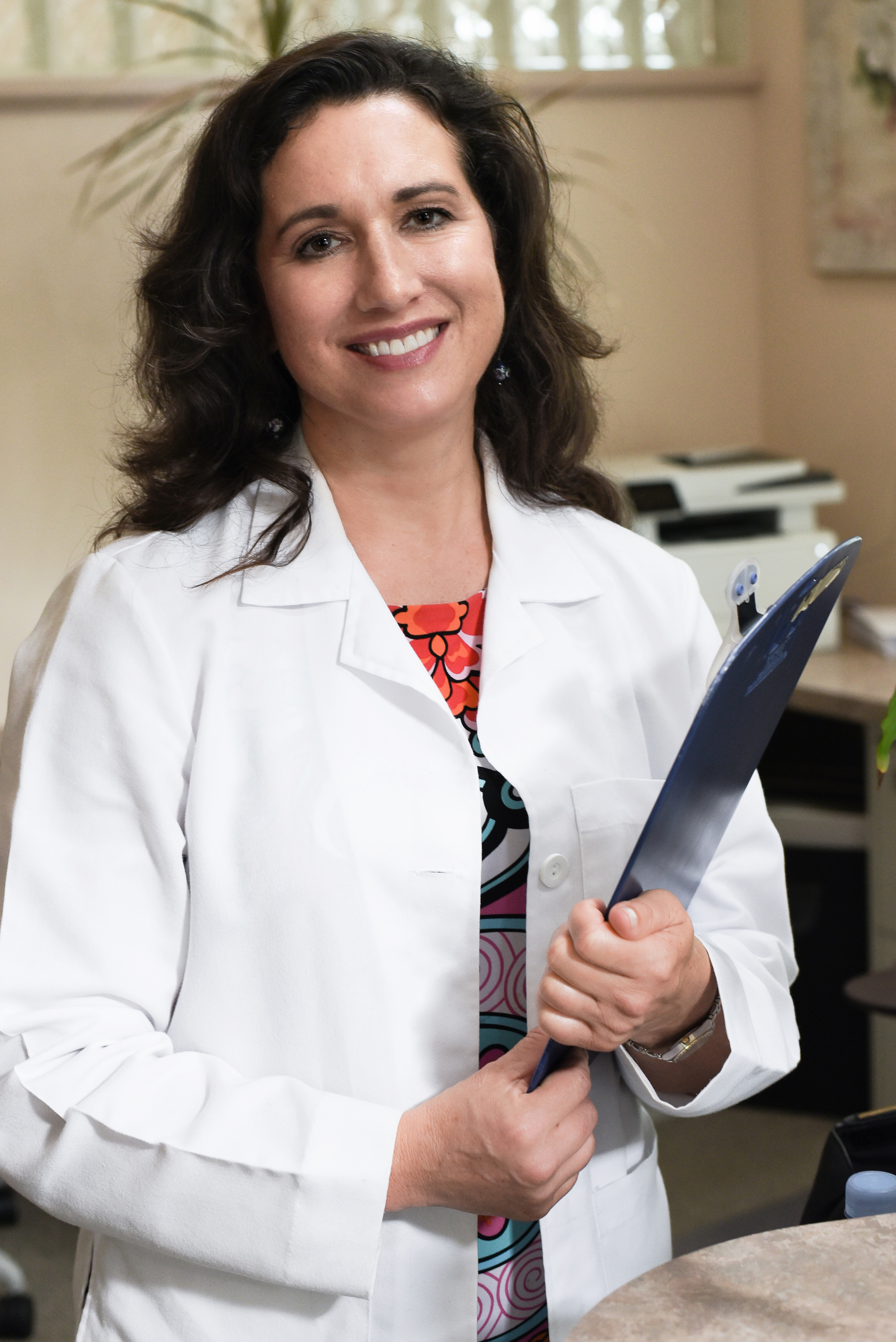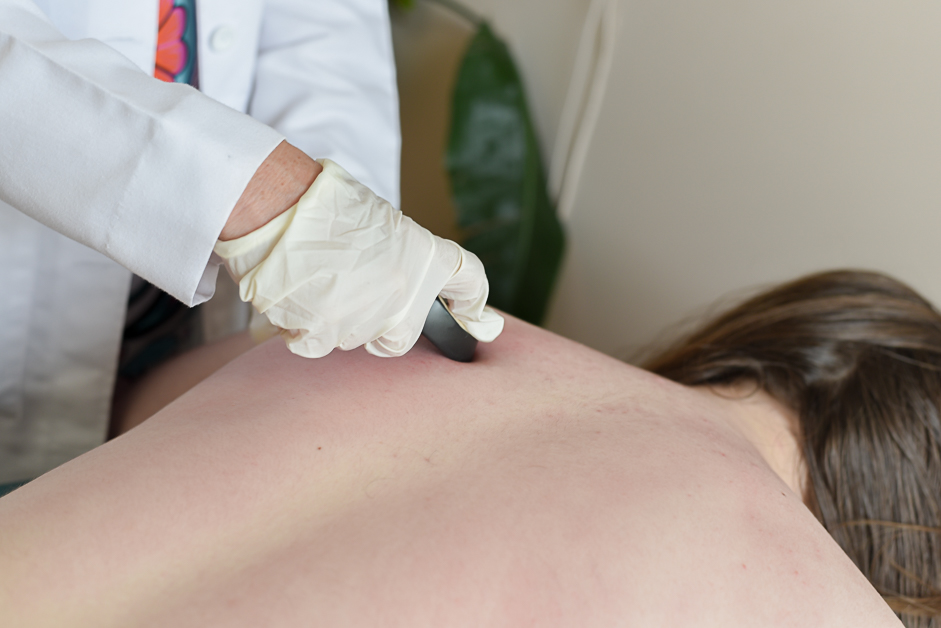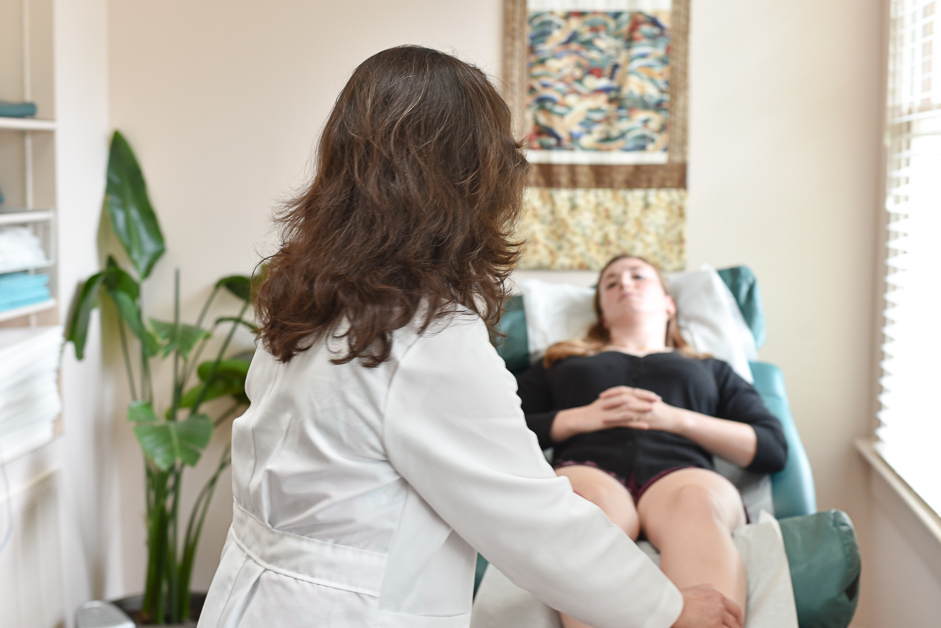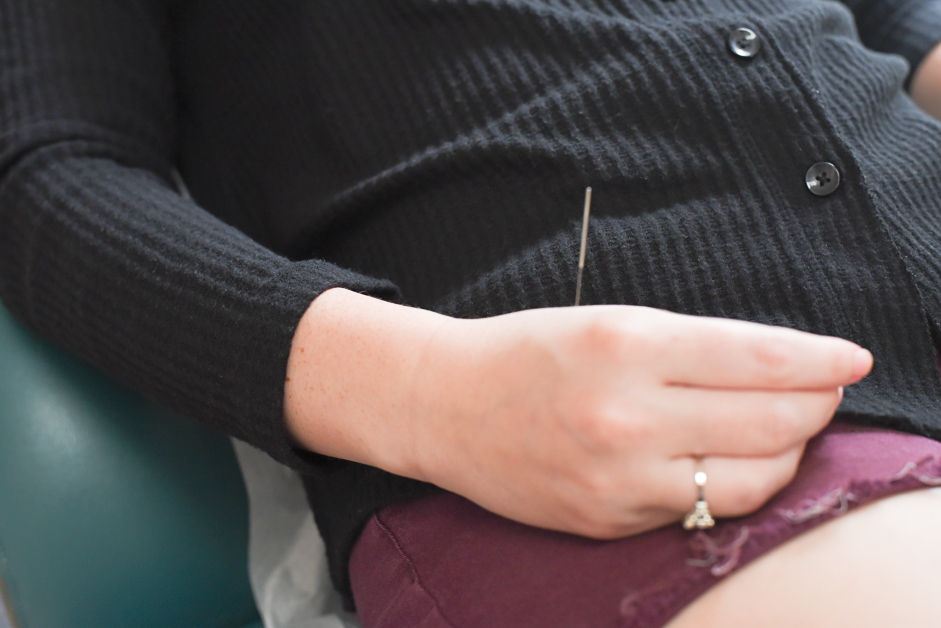
I love getting to know the people who come to me for treatment. I get to connect with them as people as well as patients. Most importantly, I listen carefully to the needs of every patient and provide an atmosphere of compassion.
I found the benefits of Chinese Medicine ten years ago as an alternative to surgery. After months of tests the source of my abdominal pain was determined to be a spasming gallbladder. Surgery was recommended to remove my gallbladder. At the time my children were young and I was not prepared to take the risk of an elective surgery. Acupuncture was recommended as an alternative. During the course of my treatment, not only did my gallbladder get better but my anxiety improved along with my sleep and digestion. In short, my overall quality of life improved!
My undergraduate degree is in Accounting; after college I worked for Coopers & Lybrand. However, once I had children my primary job became Mom. My days and nights were filled with questions: “Why? How?...” My home is one that has always fostered the love of learning and especially science. Currently my daughter is starting her final year of university and will graduate with a BS in Chemical Engineering and a BA in Spanish, with a minor in Chemistry. My middle child is a Cadet at West Point and majoring in Mechanical Engineering. My youngest is in an elite math and science program at a local high school. (I will admit to bragging on my children; I am a very proud mother!) I want you to know that acupuncture had to be evaluated by some very skeptical people to be accepted in my family, and it passed the test! I have lived in the Columbia area for almost 20 years and have been a very active member of the community. I have been PTO president, Junior League member and served on several local non-profit boards.
Benefits of acupuncture:
What is acupuncture? Acupuncture is a holistic health technique that is part of Traditional Chinese Medicine. It is accepted all over the world and recognized by the World Health Organization as an effective treatment for a wide range of health problems. In addition to being a great alternative to prescription pain medication, it is also good for mental health. In today's busy world, people are turning to acupuncture for relief from stress and anxiety.
Acupuncture can change your brain. This is perhaps the most important systemic effect of acupuncture. Recent research suggests that acupuncture stimulates the release of oxytocin, a hormone and signaling substance that regulates the parasympathetic nervous system. You’ve probably heard of the “fight-or-flight” response that is governed by the sympathetic nervous system. The parasympathetic nervous system has been called the “rest-and-digest” or “calm-and-connect” system, and in many ways is the opposite of the sympathetic system. Recent research has implicated impaired parasympathetic function in a wide range of autoimmune diseases, including arthritis, lupus, rheumatoid arthritis and inflammatory bowel disease.
Acupuncture restores the body’s natural balance. When an acupuncture needle is inserted, it stimulates the body’s nervous system, transmitting signals along the nerves and emitting a variety of biochemicals that influence other cells of the body. The nervous system is connected to the hormonal system via the adrenal gland, and it makes connections to every biological system of the body. In this way, acupuncture is truly a “holistic” medicine.
Would you like to hear more about how acupuncture can help you? Contact me to schedule a free consultation. We will make a plan to get you on the path to wellness.How does acupuncture work? The goal of acupuncture is to restore balance in the body. Ancient Chinese physicians observed that when a person was ill, that illness would manifest itself in pain along certain points in the body. When these points were stimulated with needles, the pain diminished, and frequently, the body began to heal. Today, we know that these points contain a high concentration of sensory fibers, blood vessels, lymphatic vessels, and mast cells, (and are distributed along longitudinal pathways of the body.) There are over 300 of these points on the body. Acupuncturists stimulate these points in combination to reduce inflammation, relieve pain, restore homeostasis, reduce stress, and stimulate the body’s own mechanisms of healing. Needle insertions at an acupuncture point bring immediate immune response to area, resulting in increased blood flow, muscle relaxation and reduced inflammation. In addition, acupuncture releases natural painkillers. Inserting a needle sends a signal through the nervous system to the brain, where chemicals such as endorphins, norepinephrine and enkephalin are released. Some of these substances are 10-200 times more potent than morphine! Most patients find acupuncture very relaxing.

It really doesn't! In fact, most patients find acupuncture to be extremely relaxing. I am trained and experienced in painless and gentle needle insertion. Acupuncture needles are a very fine gauge filform (threadlike) needles; some are as thin as a piece of hair. Occasionally, patients will feel a slight pinch or a dull, tingling sensation upon insertion of the needle, particularly on parts of the body without a lot of subcutaneous fat (i.e., the hands and feet). However, these sensations dissipate quickly. If a needle ever feels uncomfortable, I am always happy to adjust it or remove it. My goal is to create a relaxing, pain-free experience.

You will be asked to complete a questionnaire to better help me understand your health needs. We will discuss your wellness goals and determine a treatment plan. Based on this plan needles will be inserted in appropriate acupuncture points and will remain for 15-30 minutes. You can expect to feel relaxed and even euphoric after the treatment.

Both dry needling and acupuncture involve inserting thin needles for therapeutic purposes, but are actually very different practices. Practitioners of dry needling attempt to release tension from knots and pressure points in muscles. Dry needling uses needles similar to acupuncture needles, but primarily addresses pain on a more local level. Acupuncture needles are placed not only in the area of pain but also in designated acupuncture points. Acupuncture activates your body’s “internal pharmacy” by communicating with your brain to release endorphins and other hormones. Because of this, acupuncture is a more “whole body” or systemic treatment and can address a wider variety of conditions.

An initial treatment lasts between 45-60 minutes. Subsequent treatments take about 40 minutes.

The initial treatment is $125. All follow up treatments cost $75. Payment is due at time of service. Cash, checks, credit cards and Venmo are accepted.

Since not all plans cover acupuncture, you should call your insurance company to see if your plan does, and what the coverage or limitations are. If your insurance covers acupuncture, I can provide you with an invoice that you can submit to your insurance company for reimbursement.

The number of acupuncture treatments needed to resolve your issue will depend on a number of factors; in particular, the severity and duration of the condition, and whether your health concern is chronic or acute. Since the positive effects of acupuncture are cumulative, treatments are recommended frequently to begin, often weekly for the first few treatments, then less frequently as symptoms improve. A typical rule of thumb is to expect about 6 initial treatments for acute conditions, and about ten initial treatments for chronic conditions.